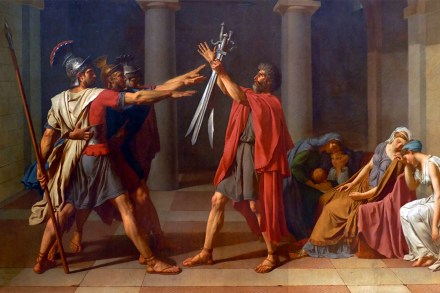Is AI the Greeks’ answer to ‘automatos’?
Elon Musk has predicted that AI will prevent anyone needing to work and will raise worldwide incomes at the same time. But will it rustle up a quick lamprey à la Bordelaise at a minute’s notice, to be washed down with a vintage Ch. Bruce Anderson? Greek comic poets had far more satisfying fantasies. Perhaps




















